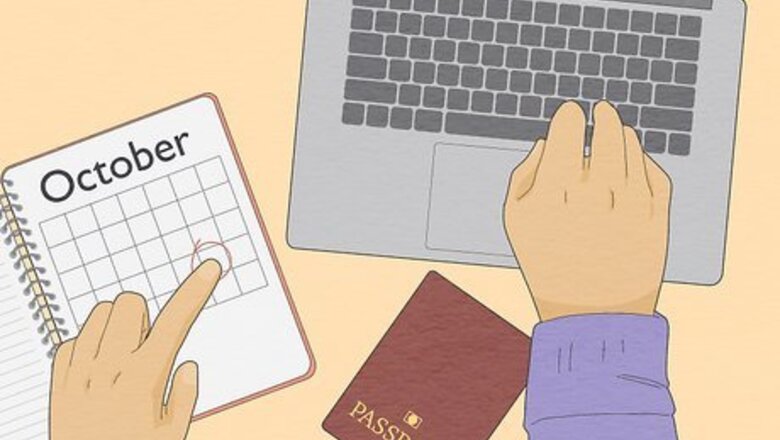
views
Travel during the off-season.
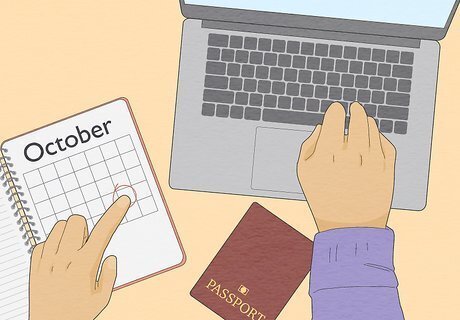
Visit Africa between March and June or October and December. Not only will flights, accommodations, and activities be cheaper, but you won't have to book as far in advance. Plus, there won't be as many tourists! Yes, the off-season is hotter and wetter than the peak tourist season, but the rain is usually brief. To deal with the temperature, pack loose clothes that are made of breathable fabric. By some estimates, you could save 20% to 40% on travel expenses by traveling during the off-season. This makes it one of the most effective ways to stick to a budget!
Check out the cheapest African destinations.
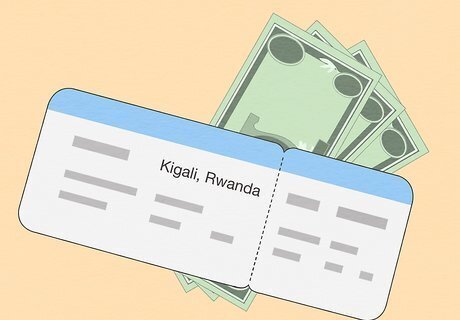
Visit countries that have a low cost-of-living. Your plane tickets will probably be the most expensive part of your trip, but you can really save when it comes to your destination. Choose countries where accommodations, meals, and transportation are cheaper. Here's a short list of destinations to get you started: Kigali, Rwanda Cairo, Egypt Addis Ababa, Ethiopia Cape Coast, Ghana Livingstone, Zambia Marrakech, Morocco Dakar, Senegal
Find a budget airline that flies to Africa.

Search an airline aggregator website to find cheap flights. To use an aggregator website, provide your departure airport and your destination in Africa. You can search by exact dates or include a flexible range. When you search, the site will pull up sites from dozens of carriers so you can select the most affordable option. Keep in mind that cheaper flights will probably have more than one stop. The site might show flights with budget airlines like Kulula, Fastjet, Mango, Flysafair, Fly540, JamboJet, Dana Air, Flydubai, or Skywise.
Take local transit to get around your destination.

Hop on a tuk-tuk or a bus for the cheapest way to see a city. In addition to walking or biking, you could hire a 3-wheeled motorized taxi called a tuk-tuk. Larger cities like Nairobi, Johannesburg, and Durban all have an inexpensive bus system, too. If you're traveling in Kenya, look for matutus. These vibrant private minibuses cover short and long distances within the country. To get between countries, look into riding the train. A second-class fare usually costs around the same as a similar bus fare.
Camp or stay in a hostel to save money on accommodations.
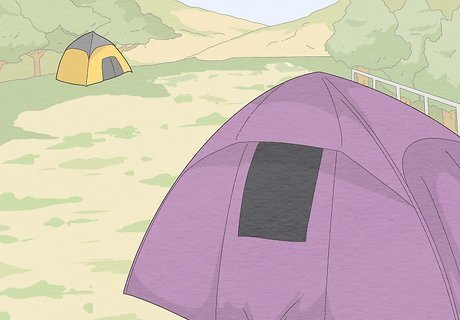
Skip costly hotels or resorts and explore Africa! Research a free or inexpensive campground in the country you're visiting—you'll really get to experience the area's natural beauty. If you prefer to stay in a city, find out if there's a hostel you can stay in. While you won't have your own room, you can meet other travelers, participate in community activities, and enjoy meals with others. Budget hotels are also a great option if you book in advance. Use an aggregator website that searches for hotels at your destination, then ranks them by cost. For example, a South African hostel in the Nqileni Village runs around $10 and includes village visits, canoeing, breakfast, and other great amenities. If you'd rather backpack and camp, you've got tons of options. You could camp in Kenya's Hell's Gate National Park for around $70 or camp in Namibia's Naukluft National Park for about $26. Be careful with places that seem too cheap or shady. It's important to read up a lot about the location you plan on staying beforehand.
Sign up with a volunteer program in exchange for cheap accommodations.

Many countries offer volunteer opportunities for weeks or months at a time. Usually, you'll pay a modest fee that totally depends on the country and program. The fee might cover lodging, meals, travel insurance, and transportation. You'll be expected to volunteer your time towards the program's mission. For instance, you might do community development in Tanzania for a cost of $200 USD a week or you may give musical instructions to kids in Ghana for around $650 USD a week. You're sure to find a program that caters to your interests. There are volunteer opportunities for sports coaching, AIDS prevention, wildlife refuges, shark conservation, and more!
Make your own food or shop at local markets.

This is especially important if you're traveling to popular tourist spots. Eating at restaurants can quickly break your budget! Take the time to buy ingredients from the marketplace and prepare meals yourself. In the interest of food safety, only buy produce that you can wash and peel yourself. Avoid shopping at expat-owned supermarkets. They usually charge a premium. Instead, get the basics where the locals shop. Check to see if your accommodations offer meals. You might be able to eat a filling breakfast and make do with snacks later in the day. Some accommodations might also offer inexpensive dinners. The Centers for Disease Control recommends that you avoid drinking tap or well water while in Africa. Stick to bottled water or water that's been disinfected. Be careful when accepting drinks from strangers. Always go for bottled drinks that are opened in front of you.
Buy a SIM card to avoid roaming fees.

Purchase an international SIM card if you plan on using your phone. If you don't get a SIM card in Africa, you'll probably pay really high roaming fees! Unlock your phone and insert your international SIM card to get started. This will allow you to contact people back home and use the phone in whichever country you're currently visiting. If your plan has a limit, keep track of how much data you use, so you're not surprised with charges on your next bill. ATM fees are another way to break your budget. If you use ATMs in Africa, you'll most likely be charged high international fees for withdrawing cash. Plus, you can't assume that you'll be able to easily find one!
Develop your haggling skills.

Negotiate for the price of souvenirs, transports, and guides. You can score fantastic deals if you're willing to work for them! Smile and engage with the seller—bonus points if you can speak a little of their language. Try to bring them down on the price. Usually, start by offering half of what they're selling it for or offer to buy in bulk. Keep negotiating until you and the seller reach a price you're happy with. Remember, be polite and have fun! Haggling in the market will be a memory you take back with you—especially if you make it fun or make a connection with someone.
Look for affordable safaris.

Choose less-popular options or new camps that don't charge as much. You'll be able to get deep savings if you're not taking a safari that's the most advertised or listed in guide books. Shop around and research self-guided safaris where you drive yourself or look into safaris offered by the national parks. While these may not be as luxurious, you'll still be able to go on organized game drives for a fraction of the price. For instance, a luxury safari could cost you hundreds of dollars or even thousands if you have to rent a private vehicle. By comparison, you could stay do a safari out of South Africa's Kruger National Park for $70 a night.
Visit free or inexpensive parks.

Explore the beauty of Africa by seeing national parks or wildlife refuges. If you want to bypass safaris altogether, you can still take in the wonders of Africa. Many of these are free or they charge a minimal conservation fee. For instance, you can go to Mosi-oa-Tunya National Park in Zambia for $10 to see white rhinos and the popular Victoria Falls. This is cheaper than seeing the falls from Zimbabwe where it will cost you $30. Depending on where you're traveling, you may be able to spend time at a breathtaking beach. Check out Wimbi Beach in Mozambique or Grand Baie Public Beach in Mauritius for instance. If you love elephants, be sure to visit Chobe National Park which is known as the elephant capital of Africa! The entry fee is only $13. Want to see Mt. Kilimanjaro? Skip Kilimanjaro National Park which costs $70 a day and see the volcano from Amboseli National Park for half the price.
Plan activities that don't cost you money.

Take a tour of local villages or walk around vibrant markets. While you don't have to spend money, you might find that the perfect souvenir costs very little. More than anything, walking around the area—listening to bands, talking with locals, and savoring the sights—doesn't have to cost you anything! For example, spend an afternoon walking around Morocco's famous markets in Fez, or enjoy the sounds of street musicians playing in Cape Town.

















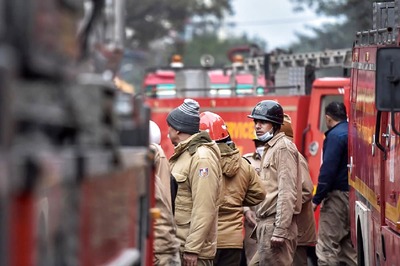

Comments
0 comment